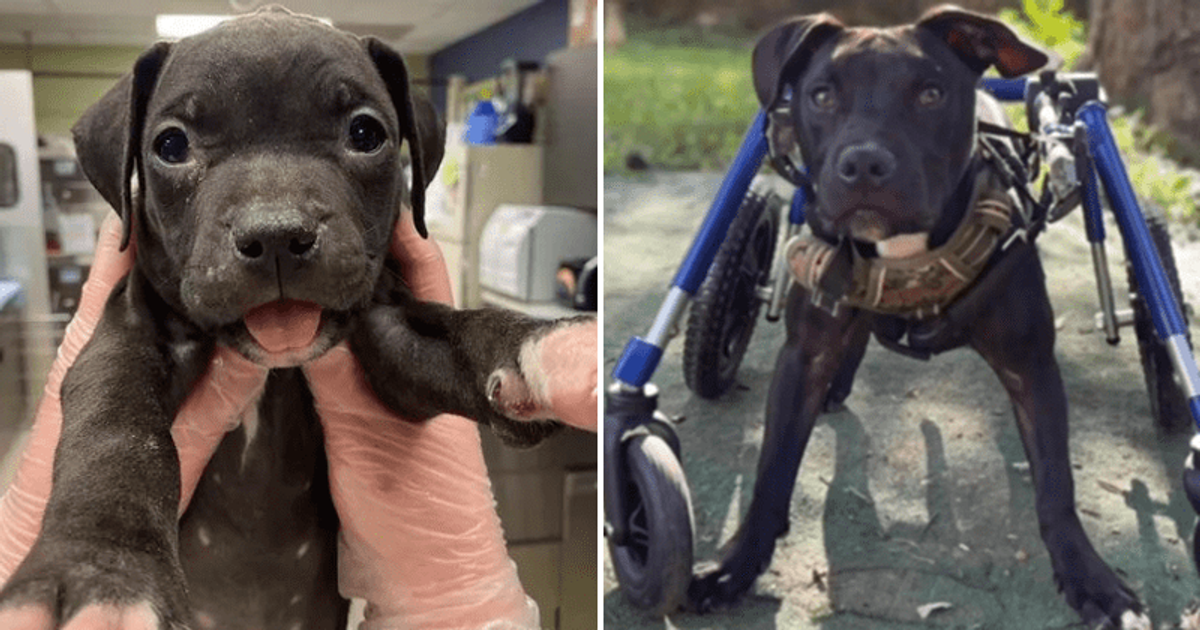Sit Down Dog Wheelchairs

6 Health Conditions That Can Affect Your Pet's Mobility
A pet owner's biggest nightmare is seeing their beloved pet in pain and struggling to move around. Suddenly, you must help your pet up the stairs, into the car, and on walks. It's heartbreaking. If you have a job or other responsibilities, it can also be frustrating and overwhelming.
Many health conditions can cause mobility issues in pets, from arthritis to neurological disorders. While some of these conditions are incurable, it is best that you prevent them before they start or at least be aware of the early warning signs.
1. Arthritis

Arthritis is a common condition affecting humans and animals, particularly as they age. It's caused by the deterioration of the cartilage in the joints, which leads to inflammation, pain, and stiffness. Although there is no cure for arthritis, there are ways to manage the pain and improve your pet's quality of life.
Some warning signs that your pet may have arthritis include difficulty rising from a lying or sitting position, lameness or stiffness after exercise, hesitating at stairs or jumps, and decreased activity level. If you notice any of these signs, take your pet to the vet for a check-up.
You can prevent arthritis or slow its progression by making sure your pet stays at a healthy weight, getting regular exercise, and avoiding joint injuries.
Setting aside enough money to cater to your pet's mobility needs using an online savings account or a vault in your bank account is also a good idea. Not only will this help you cover the cost of treatment, but it will also give you peace of mind knowing that you're prepared.
2. Hip Dysplasia
Hip dysplasia is a condition that affects the hip joints. In dogs, it's caused by the dislocation of the ball (femoral head) from the socket (acetabulum). Most pets that suffer from hip dysplasia show symptoms such as lameness, pain, and stiffness in the hips.
Hip dysplasia is genetic, so there's no way to prevent it. However, you can minimize the risk by ensuring that your pet stays at a healthy weight and avoiding joint injuries.
If you think your pet may have hip dysplasia, take them to the vet for a thorough diagnosis. Also, talk to the breeder if you have a puppy, as they may be able to tell you if the condition is expected in the pet's family line.
You can determine your pet's risk by checking its weight and body condition score. If they're overweight or obese, they're more likely to develop hip dysplasia. Keeping an eye on their weight and ensuring they get regular exercise will help keep their joints healthy.
3. Intervertebral Disk Disease (IVDD)
IVDD often affects small breeds of dogs, such as Dachshunds, Pekingese, and Shih Tzus. It's caused by the herniation or rupture of the disks that cushion the vertebrae in the spine. When this happens, the disks press on the spinal cord and nerves, leading to pain, weakness, and even paralysis.
In the early stages, you may notice your pet hesitating to jump or climb stairs, acting stiff or rigid, holding their head and neck in an abnormal position, or walking with a " Hunched back." If you see any of these signs, take your pet to the vet immediately. A dog wheelchair can also help your pet move around and get the necessary exercise.
IVDD is often caused by genetics but can also result from trauma or injury. You can minimize the risk by ensuring that your pet doesn't jump from high places and avoiding injuries to the spine.
4. Neurological Disorders

Neurological disorders can affect any part of the nervous system, including the brain, spinal cord, and nerves. Common symptoms include incoordination, weakness, paralysis, seizures, and changes in behavior.
Although some neurological disorders are incurable, many can be managed with medication and other treatments. The key to treatment is early diagnosis, so if you notice any changes in your pet's behavior, have a vet check them out as soon as possible.
There are many causes of neurological disorders, including genetics, trauma, infections, tumors, and congenital defects. You can prevent some disorders by vaccinating your pet against common diseases, such as rabies and distemper. Others, such as congenital defects, cannot be prevented.
5. Cancer

It is easy to assume that cancer only affects humans, but the truth is that our pets can get cancer too. Cancer is the leading cause of death in dogs and cats over the age of 10.
Many different types of cancer can affect pets, with symptoms varying depending on the type and location of the tumor. Common symptoms include weight loss, lethargy, appetite changes, and lump or masses.
If you notice any of these symptoms in your pet, make an appointment with the vet as soon as possible. As is the case with humans, early diagnosis is crucial for treatment success.
There is no surefire way to prevent cancer, but you can reduce your pet's risk by feeding them a healthy diet, avoiding exposure to toxins, and keeping them at a healthy weight. You should also have your pet checked by the vet regularly for early detection.
6. Gastrointestinal Disorders
Gastrointestinal (GI) disorders are a common health problem in pets, particularly dogs and cats. Infections, allergies, parasites, and other conditions can all lead to GI problems. GI disorders include vomiting, diarrhea, weight loss, appetite changes, and abdominal pain.
Most cases of GI disorders do not show any warning signs and can be easily treated with a course of antibiotics or other medication. However, some cases can be life-threatening, so it's essential to seek veterinary care if you notice any changes in your pet's appetite or bathroom habits.
There are many ways to prevent GI disorders, including feeding your pet a balanced diet, avoiding exposure to contaminated food or water, and regularly deworming them. You should also have your pet checked by the vet at least once a year for early detection.
Generally, pets are susceptible to many of the same health problems as humans, but some unique conditions can affect them. By being aware of these conditions and taking steps to prevent them, you can help keep your pet healthy and happy for years.
Remember to set aside time for regular vet check-ups and always consult a professional if you have concerns about your pet's health.









